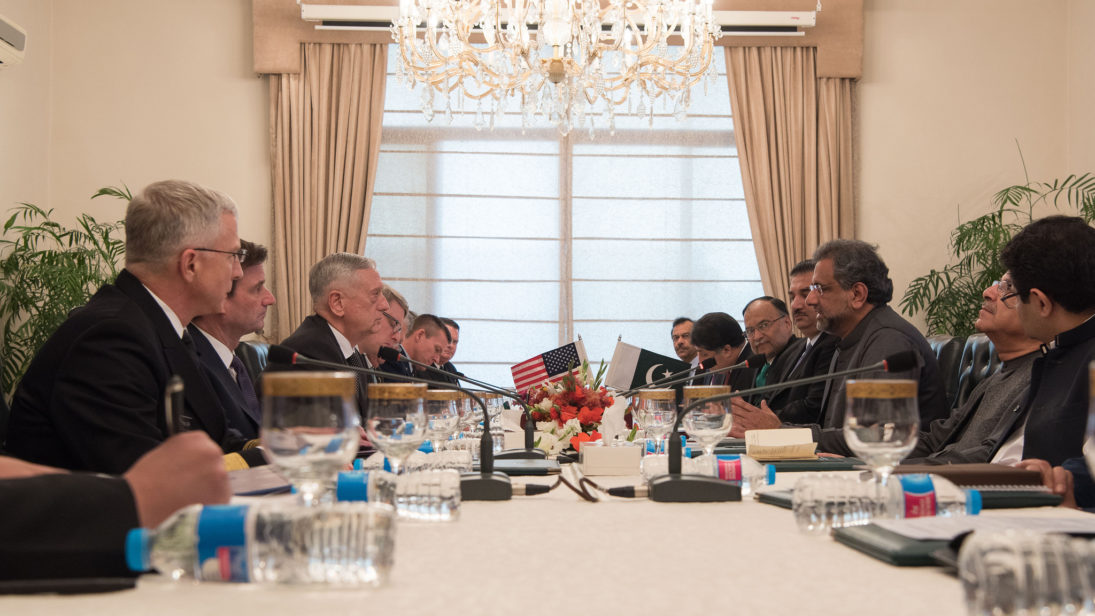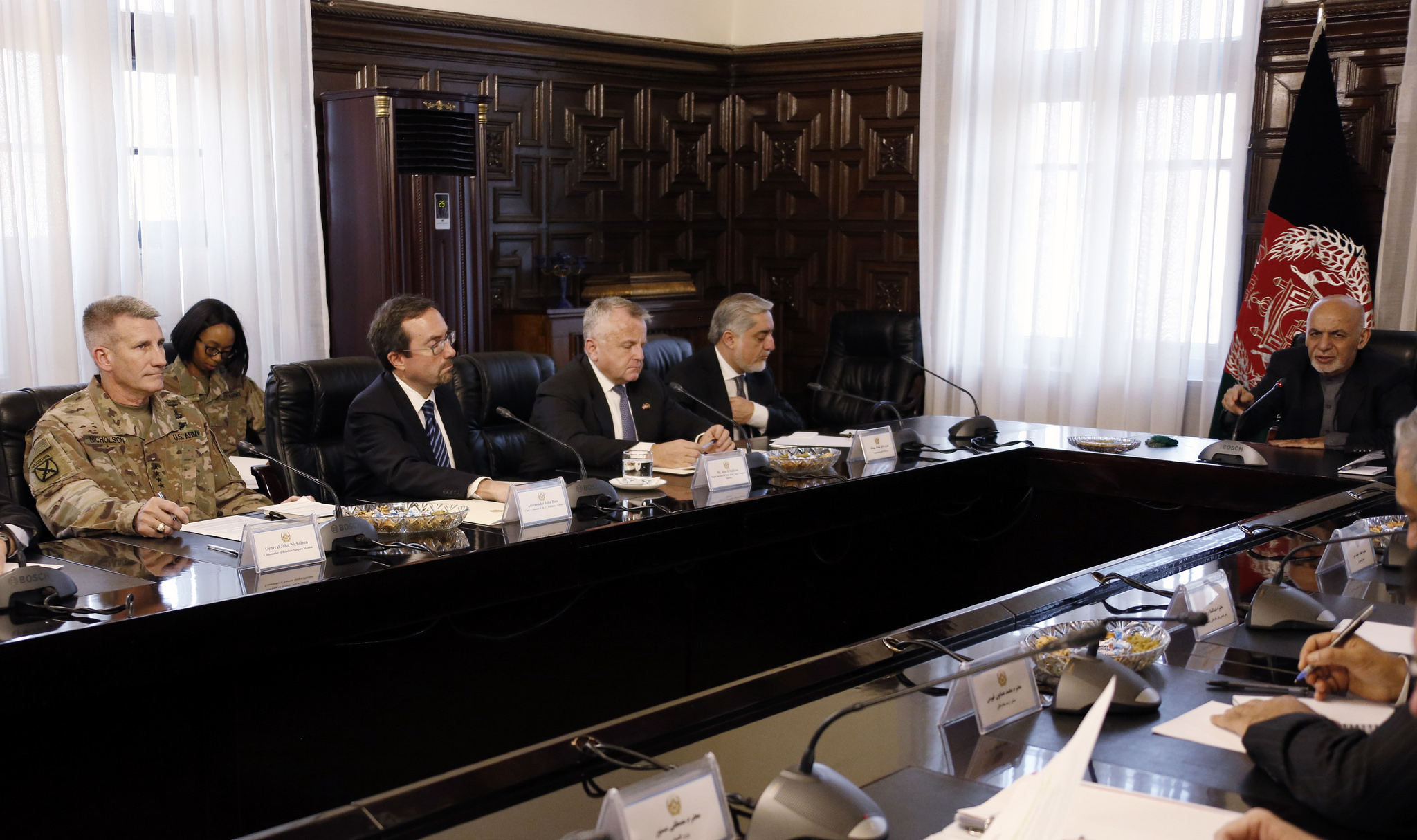
The United States-Pakistan relationship is at a critical juncture. Developments over the past month indicate that mistrust and divergence of interests have increased the strategic distance between the two, yet both sides continue to maintain communication. Domestic politics and geographical constraints guide Pakistan’s cautious response to the Trump administration’s belligerent posture since at the moment, the United States is Pakistan’s neighbor, owing to its military presence in Afghanistan. At a time when the Trump administration is being confrontational and Pakistan is preparing for general elections this summer, it is unclear how their bilateral relations will continue in the near future. An indication of how this relationship may unfold could, however, be found in the bilateral crisis of 2011. For this purpose, it is important to explore how Islamabad and Washington navigated out of crisis mode in 2011, assessing possible measures both sides can take to shape the contours of their bilateral relationship in the present.
Past vs. Present
The roots of strategic dissonance between Washington and Islamabad span the past decade. Despite constant pressure from the United States to “do more,” especially with regards to Afghanistan, Pakistan has steadfastly pursued its own national security interests. Thus, Islamabad and Washington have often clashed. Arguably the worst year for bilateral relations in the 16 years of engagement between Pakistan and the United States, the year 2011 is a case in point. Recurring tensions with the United States – due to the Raymond Davis incident, the Osama Bin Laden raid, and the Salala attack – compelled Islamabad to close NATO supply routes through its territory into Afghanistan, affecting U.S. war efforts. Patient diplomacy gradually repaired the relationship, with Washington ultimately tendering an apology to Pakistan, resolving this standoff.
Five years later, Pakistan and the United States are clashing again. The Trump administration has demanded certain actions, while Islamabad has dug its heels in, refusing to accede to U.S. demands. However, though the divergence between the strategic outlooks of Islamabad and Washington will have to be dealt with in the long term, the current deadlock is temporary. Looking at the events of the past few weeks closely, Pakistan has responded in a measured way to the U.S. decision to suspend security assistance. While Islamabad criticized the administration’s decision, it did not make a similar move towards suspension of the NATO supply routes to U.S. troops in Afghanistan. Additionally, leaders in Pakistan may not have the political capital necessary to undertake the reclamation of bilateral relations with the Trump administration and reassess the country’s Afghan policy for the time being. 2018 is an election year in Pakistan, which means that the PML-N government is preoccupied with domestic politics, focusing on securing a majority at the polls. Widespread anger against Trump’s policies and rhetoric in Pakistan also constrains the space for meaningful engagement with Washington, and in an election year, domestic politics trumps foreign policy. What this means for relations with Washington is that tactical cooperation will resume and bureaucratic engagement will take place on an “as and when” basis. Thus, the current status quo will most likely continue for the near future. Nonetheless, before a reset takes place, both sides can attempt to make progress in certain areas.
Next Steps for Bilateral Engagement
Regarding the war on terrorism and the conflict in Afghanistan, Islamabad and Washington are well aware of each other’s concerns and interests. The United States seeks action against specific groups, particularly the Haqqani network, and also emphasizes the crucial role of Pakistan in facilitating a reconciliation process in Afghanistan. On the other hand, Pakistan’s national security posture is India-centric and its concerns in Afghanistan reflect that. Islamabad is wary of the long-term presence of U.S. forces in Afghanistan and the footprint of India across its western border: Islamabad alleges that a joint Afghan and Indian intelligence apparatus is fomenting terrorism in Pakistan. To bridge this distance in thought, the first requirement is a “ruthlessly candid dialogue,” as termed by Pakistan’s defense minister Khurram Dastagir Khan. Such a dialogue will take place in private, where, through back channels, American and Pakistani interlocutors can begin to discuss the minimum action each seeks from the other and then chart a course for reducing political tensions. However, a major challenge here is to identify who will verify the steps each side takes to implement the commitments made.
Renegotiating the Aid Factor
For over a decade, Pakistan has allowed the United States-led international forces to utilize ground and air supply lines on its territory without charging a fee. Former Secretary of State Hilary Clinton acknowledged this fact. However, in recent years, a narrative has emerged that Pakistan has been provided “billions and billions of dollars” but has not cooperated with the United States in Afghanistan. Thus, as a sovereign nation, Pakistan needs to lessen its dependence on foreign economic assistance. As a first step, Islamabad could announce that it will not receive any further assistance from Washington, but will charge the United States and international forces for using air and ground supply corridors via Pakistani territory.
It is important to note here that though Washington has provided security and economic assistance to Islamabad, it has always come with strings attached. As the contours of the post-9/11 relationship were shaped in late 2001 and early 2002, both sides agreed that the United States would reimburse Pakistan for the military operations it undertook on its soil to support United States efforts in Afghanistan. Out of the $33 billion provided by the United States to Pakistan since 2002, around $14 billion is classified as coalition support fund (CSF) reimbursements, which does not qualify as foreign assistance. While the remaining security assistance has been crucial for developing Pakistan’s counterterrorism capabilities, it is important to remember that the United States has provided that assistance in furtherance of its own national security interests.

Political Process in Afghanistan
Two weeks after President Trump accused Pakistan of “lies and deceit,” media outlets reported that talks took place between the Afghan Taliban and the Afghan government in Turkey and Pakistan. Coincidently, acting Assistant United States Secretary of State for South Asia Alice Wells was also in Islamabad during the same period. All this indicates that pressure from the United States may have led Pakistan to attempt exploratory peace talks. Thus, Islamabad and Washington can attempt to save their bilateral relationship by achieving preliminary progress in talks with the Afghan Taliban. But any forward movement on peace talks also requires a discussion between the two on their goals from this process. Both seem to at least agree on some form of reconciliation with the Taliban: Washington has indicated openness to a political settlement with Taliban if they reject terrorism while Islamabad has pushed for a “politically-negotiated settlement” between the Taliban and the Afghan government. Pakistan asserts that only the Afghan government and the United States can negotiate details for such an arrangement with the Taliban, and thus, Islamabad cannot guarantee the success of a peace process. While reconciliation may take time, both sides can still signal their commitment to the cause by working together to restart negotiations.
Conclusion
Due to geographic compulsions and constraints of the international system, Islamabad and Washington are compelled to maintain communication. However, this appears to be the beginning of a new phase in their seven-decade-old bilateral relationship. A total rupture in bilateral ties is not in the interest of either side since both countries are significant stakeholders in the ongoing conflict in Afghanistan. Their divergent strategies were bound to clash and a reset may only happen slowly. However, in the meantime, by taking some small steps such as beginning a frank conversation and achieving some progress with regard to the Afghan peace process, both sides can repair some of the damage and tone down political tensions.
***
Image 1: DoD photo by Army Sgt. Amber I. Smith via Flickr
Image 2: U.S. Department of State via Flickr


